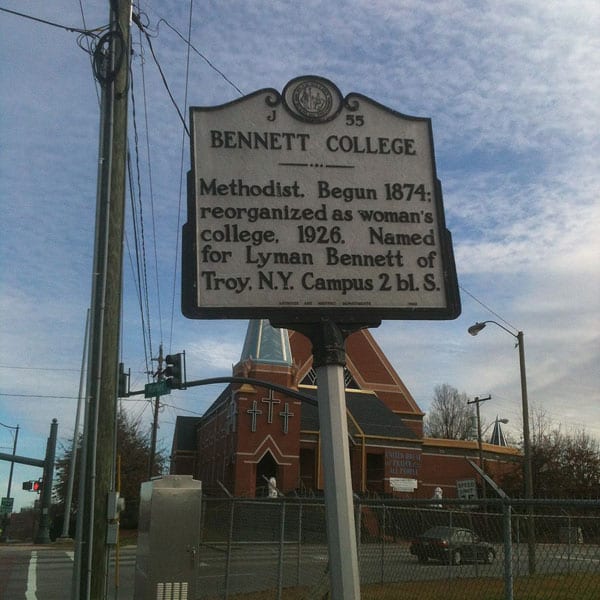
February 1, 2019; Chronicle of Higher Education
Despite this being the sector of cooperation, this story about investments made across organizational lines is extraordinary. To NPQ, it reinforces the importance of stakeholders—both individuals and institutions.
It came right down to the wire. The Southern Association of Colleges and Schools Commission on Colleges (SACSCOC), a college accreditor, had placed Bennett College on two-year probation, threatening to pull the college’s accreditation for financial instability. Bennett had until February 4th to submit an appeal. In order to submit the brief, the school had to raise $5 million. It made the money with just minutes to spare, thanks in a big way to a college 20 miles down the road.
Bennett College, a nonprofit, is one of only two remaining women-only historically black colleges (the other is Spelman College in Atlanta). It began in the basement of a Methodist Protestant church in 1873 and went on to build on land purchased five years later by emancipated slaves. Started as co-ed, it switched to women only in 1926. Since 1930, 5,000 women have graduated. In order to run the institution’s 24 areas of study, it takes more than tuition, which accounted for barely half of the revenue in 2017. That year, it had one month of cash on hand and a net loss of $1 million.
Twenty miles down the road in North Carolina is High Point University. It, too, is a nonprofit and it, too, was started by the Methodist Protestant Church (now United Methodist Church) in 1924. High Point, with an undergraduate enrollment of 4,500, is not large, but it is considerably larger than Bennett, which currently enrolls 463 full-time students and two part time students. High Point also has a healthy net revenue position, with a surplus in 2017 of $69 million, even after $196 million in expenses.
Sign up for our free newsletters
Subscribe to NPQ's newsletters to have our top stories delivered directly to your inbox.
By signing up, you agree to our privacy policy and terms of use, and to receive messages from NPQ and our partners.
As the clock ticked down on Bennett’s fundraising, High Point stepped in with a rare gift, a donation from one college to another college of $1 million, which had been approved by a vote of the faculty. The campaign had raised $3.8 million through social media up to that point.
High Point’s president, Dr. Nido R. Qubein, challenged others to #StandWithBennett in a livestreamed conference on February 1st.
“I have been very impressed with the number of alumnae, students, and human beings who, when they understood Bennett is in a moment of need, responded by the thousands,” Qubein said. “We as a neighbor school cannot just stand by. High Point University is proud to stand with Bennett College.”
“In your toughest times, you know who your friends are,” said Phyllis Worthy Dawkins, Bennett’s president. “High Point University has been a dear friend to us.”
In the end, Bennett raised $8.2 million. The amount of money raised since the call went out on social media in December is impressive. However, it should be noted that this will not secure Bennett’s accreditation; it just allows the school to state its case in appeal. Bennett’s administration plans to meet with the accrediting agency on February 18, 2019, and from there it will take a full-court press to change circumstances. But in this case, the college called for its friends to step up—and step up they did. So one may presume, much as Sweet Briar did with their newly re-engaged stakeholders, they will have much time and talent to draw on in their renewal.—Marian Conway













